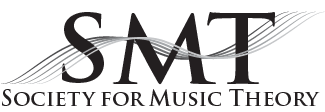Hello!
If you would like to participate in discussions, please sign in or register.
Categories
In this Discussion
- Anton Vishio July 2019
- Deborah Burton July 2019
- Nate Mitchell July 2019
- Richard Cohn July 2019
Most Popular This Week
Due to changing needs and technologies, the SMT Executive Board has decided to retire SMT Discuss (effective Nov. 9, 2021). Posts will be preserved for archival purposes, but new posts and replies are no longer permitted.
Peter Westergaard
I have just heard the sad news that Peter Westergaard has passed away. He was 88 and attended SMT national meetings up until 2018.
https://theviolinchannel.com/american-composer-peter-westergaard-died-princeton-university-obituary/
SMT Discuss Manager: smtdiscuss@societymusictheory.org

Comments
Thanks, Nate, for linking to that detailed obituary.
Peter Westergaard was both my first theory teacher and my first composition teacher, and so was a major figure in my musical life. I came to college with little more than fundamentals: Peter's course freshman year was a system shock. The idea that you could construct a theory of tonal music from first principles: it had never occurred to me that music theory could be like that! I found myself resisting his approach, initially; but before long, thanks to the careful analyses he offered in his lectures, it drew me in, and has remained for me a benchmark.
I had encountered his name in high school, in the first edition of Paul Griffiths's Modern Music: The avant garde since 1945. Griffiths provided an intriguing discussion of Peter's early Quartet (1960) and its fusion of a "Webernian delight in symmetry" with a "Babbitt-like" concern for expressing pitch-class relationships in multiple domains - most strikingly in timbre.
But when I studied with Peter, his interests had shifted, and the musical needs of his dramatic inclinations were, I think, a major motivation. At a colloquium in the late 1980s, he described moving from composing a music in which a small number of pitches represent as many relations as possible to one in which a large number of pitches represent as few relations as possible. (That is I believe very close to his own way of describing the change.) I asked him about this shift years later, after a performance of his late 1960s opera Mr. and Mrs. Discobbolos; he remarked that this opera, his second, already represented this development in his compositional thought. Its rewards are amply displayed in the increasing richness of the musical surfaces of his later dramatic works, from The Tempest on. His interest in timbre fortunately remained; he wrote a number of works involving percussion, many for the New Jersey Percussion Ensemble, and I remember him describing the challenges of handling the emergence of pitch in putatively non-pitched percussion.
It was a pleasure and an inspiration to see Peter, often accompanied by Barbara, at SMT year after year, and to witness his interest in the work of younger colleagues. I am grateful for having had the opportunity to study with him, and I hope the legacy of his musical thought - probed deeply by Marion Guck, Fred Maus, Steve Peles, and Robert Snarrenberg among others - will motivate further explorations.
Peter Westergaard's keynote address, "Geometries of Sound in Time," in 464 rhyming quatrains and sestets, set a standard that will never be matched. The combination of artistry and erudition is a thing of beauty to behold, and learn from. The imagination was boundless, as was the kindness, courtesy, and curiosity. A life to celebrate.
I also think of his wonderful textbook from the mid-1970's, which I remember as a model for asking and answering deep questions in plain language.
I hope someone who knew Peter well, perhaps at Princeton, can post a proper obituary.
--Rick Cohn
I will leave a brief excerpt from an email from our department chair, Wendy Heller, which may be useful for anyone who wishes to honor Professor Westergaard's memory,
"Dear Friends,
Just a brief note to let you know that Liz and Maggie Westergaard have generously asked that any contributions in lieu of flowers be given to the Princeton University Orchestra. For more information on how to give, please see the orchestra website:
https://orchestra.princeton.edu/give/
As many of you may not know, Peter was the conductor of the PUO in the 1970s, and even conducted Beethoven Symphony no. 9. It was Peter, in fact, who felt strongly that the Princeton Orchestra should have a professional conductor, thus bringing Michael on board. The rest, as they say, is history...
Michael will also be formally announcing that the first PUO concert of the season henceforth will be known as the Peter Westergaard Concert."
Edit: There is also an obituary from the University here: https://www.princeton.edu/news/2019/07/02/peter-westergaard-music-scholar-and-composer-formidable-skill-dies-88
I knew Peter mostly as an opera colleague. We attended Glimmerglass Opera almost every year, with his wife Barbara and another friend. He always tried to sit in the front row and was fascinated by details of performance and staging. After the show, we'd stay up late and compare notes.
His advice about writing opera (with which I whole-heartedly agree) is that a good opera composer must understand the stage and how it works. He certainly did!
Deborah Burton
Boston University
burtond@bu.edu